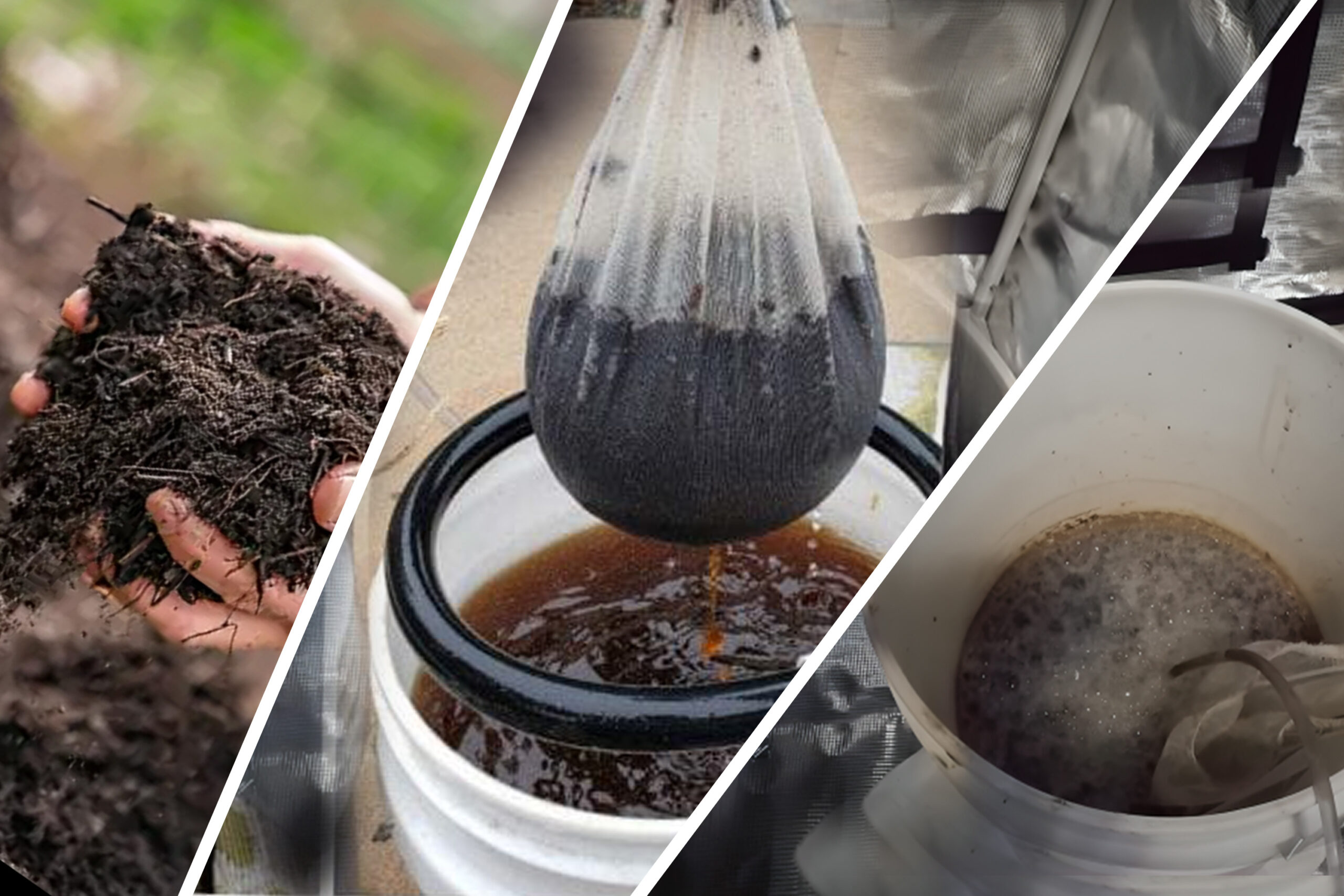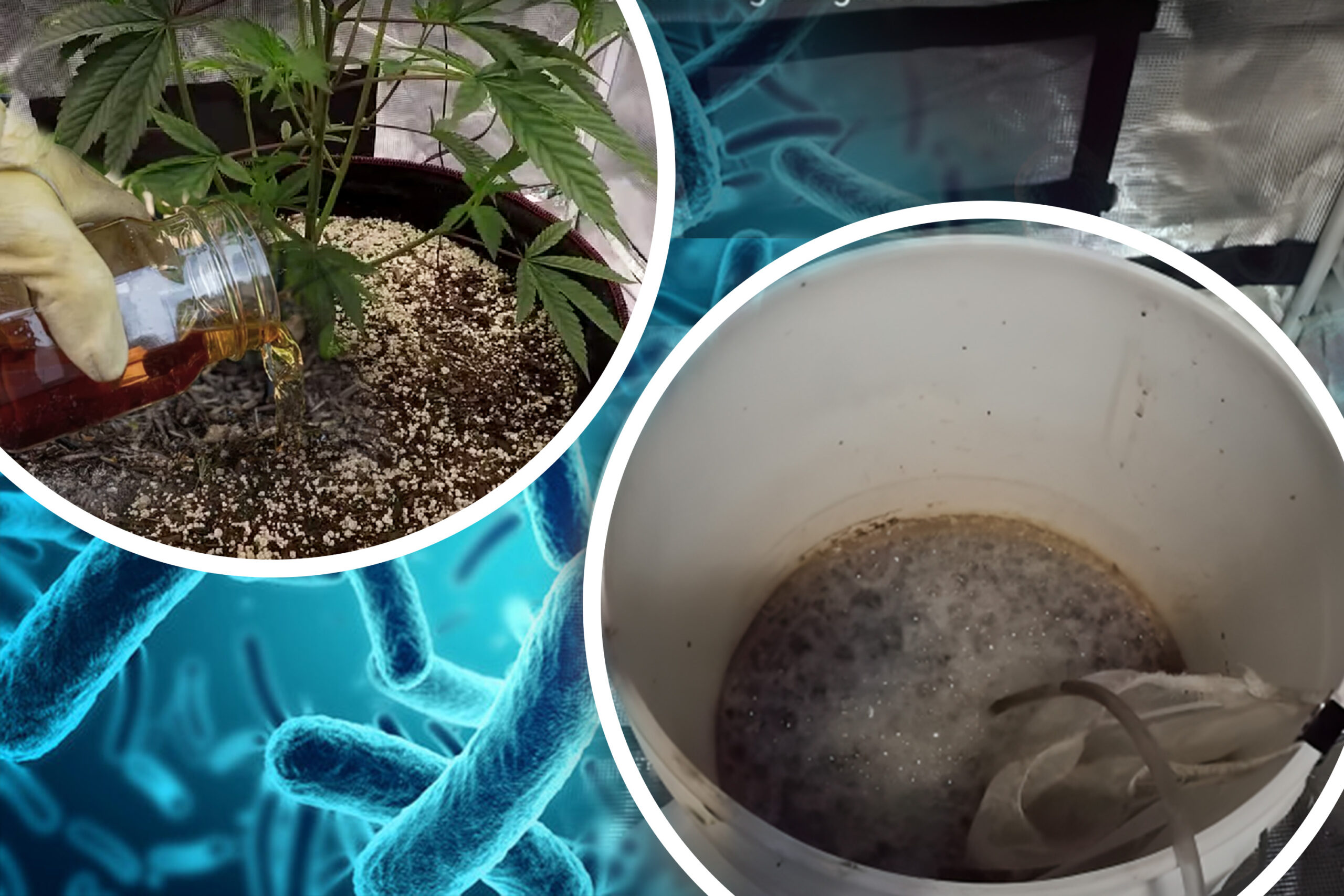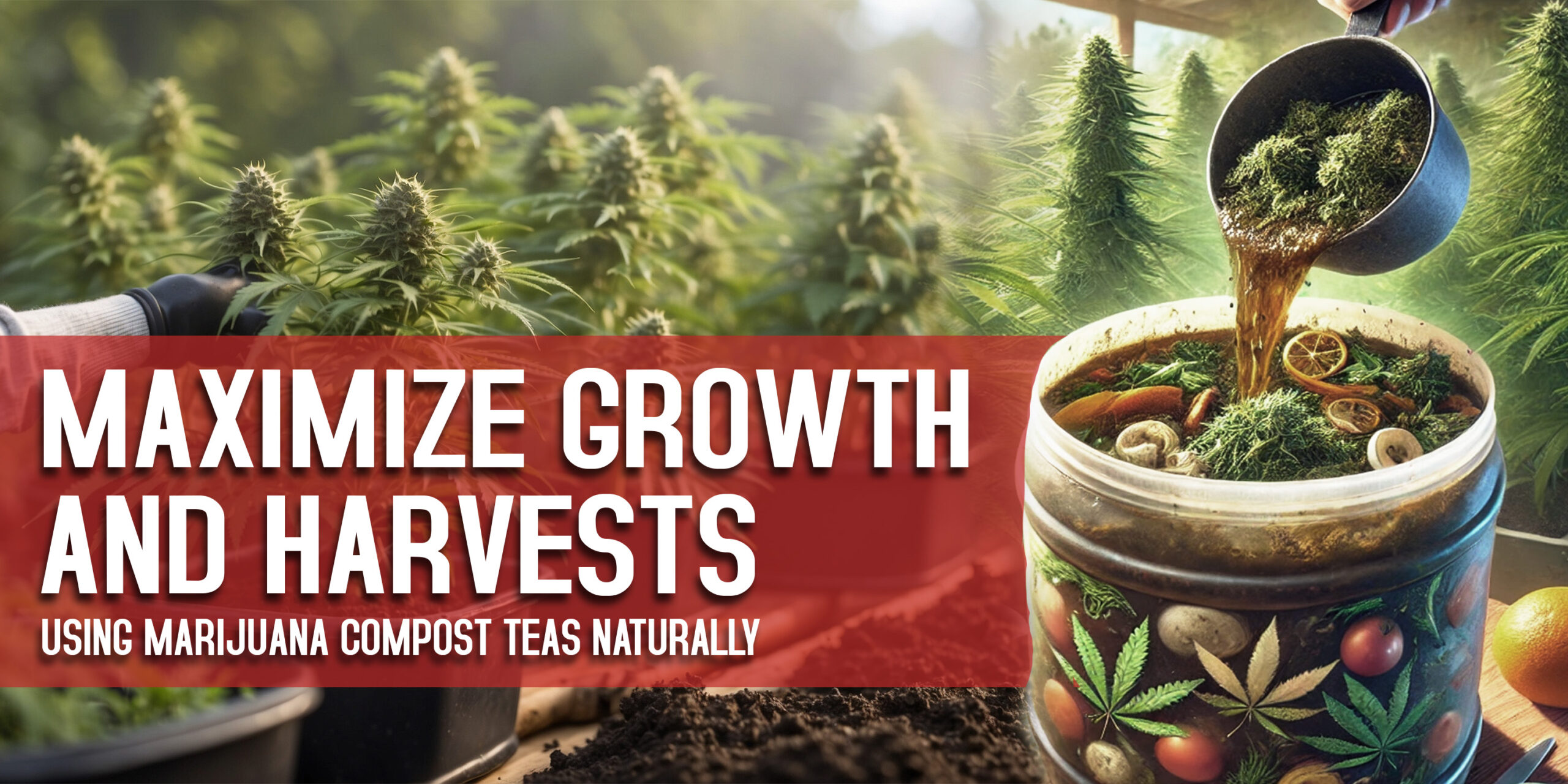Giving farmers the means to fully use nature, compost teas are transforming cannabis growing. Compost Teas support good plant development in all phases of the cannabis life cycle using living, nutrient-rich infusions that improve microbial complexity, nutrient delivery, and robust, healthy development. From the method of making them and the advantages of employing compost tea for flowering stage recipes and modern brewing techniques, we show in this thorough reference how to release the energy of cannabis compost teas—so each drop provides measurable gains in plant health, flavor, and production.
What Are Cannabis Compost Teas?

Cannabis compost teas are nutrient-dense liquid infusions made by steeping organic matter like compost, worm castings, guano, kelp, molasses, and other bioactive components in water. The teas not only provide the plant with an instantaneous infusion of nutrients but also inoculate the rhizosphere with helpful bacteria that boost nutrient cycling and root fortification.
Most compost teas for weed plants are based on quality compost or vermicompost, which serves as a microbicide. To meet certain plant demands, incorporate other ingredients such as bat guano (phosphorus), lucerne meal (nitrogen and growth hormone source), and kelp (rich with minerals and natural PGRs). Once correctly aerated, these teas abound in life—bacteria, fungus, protozoa, and nematodes—that complement the cannabis plant.
Advantages of Using Cannabis Compost Teas

Tea for weed plants helps grow cannabis in ways far beyond only supplying nutrients. Growing in good, physiologically active soil conditions, cannabis plants flourish; compost teas are among the finest ways to keep the soil healthy and enhance its conditions. They support a good microbial habitat that not only aids in nutrient absorption but also increases plant natural strength and immunity. The following are some of the main benefits compost teas offer:
Enhanced Nutrient Absence
Among the main benefits of booster, teas is higher vitamin and macronutrient bioavailability. Microbial action breaks down complex organic stuff into forms that plants can use. For instance, after microbial breakdown, bat guano phosphorous becomes readily available, helping cannabis plants to produce bigger, heavier blossoms.
Enhanced Microbial Response
Aerated compost teas (ACTs) introduced by microbes inoculate a network of life into the root zone. Protecting against illnesses like root rot and fusarium, this microbiome competes with disease pathogens and advances a healthy rhizosphere. Additionally produced by these bacteria are secondary metabolites and plant growth regulators that induce strong development and higher terpene synthesis.
Root Zone Optimisation
Compost Teas provide microbial life that aerates the soil, helps to minimize compaction, and increases nutrient exchange rates. Healthy roots translate into bigger plants with faster rates of nutrition and water absorption, so improving yields and floral quality.
Different Kinds of compost teas Support Different Growth Stages
During vegetative and blooming stages, plants of cannabis have quite variable dietary requirements; therefore, the composition of booster tea has to match these changing needs. Using customised recipes at every stage ensures the plant is optimally supplied with support for growth and reproduction while maintaining healthy soil.
Some tea recipes can offer every phase of the cannabis plant’s life cycle. Growers may maximize their teas by using customized input that spans developmental needs.
Compost Tea Recipe for Veg Stage
- Two cups for the worms castings
- Meal from alfalfa, ¼ cup
- Meal for Kelp: ¼ cup
- One tablespoon of unsweetful molasses
- Optional fulvic acid: one tsp
This mix provides nitrogen, amino acids, and natural plant growth hormones including triacontanol and cytokinins, therefore promoting green, healthy growth. Aerate for 24 to 36 hours then use every seven to ten days as a root drench.
Ingredients in Pre-Flower Booster Tea: Transition/Pre-Flower
- Bat guano high in phosphorus: ½ cup
- ¼ cup of seabird guano
- Meal from kelp: ¼ cup
- EWC – 1 cup of compost
- One tablespoon of molasses
For internodal elongation and flower initiation, this tea supplies potassium and phosphorus. Use weekly for best results during the first two weeks of bloom.
Compost tea recipe for bloom:
- Bloom bat guano half a cup
- ¼ cup is the bone meal.
- 1 tablespoon Kelp extract
- One tablespoon of blackstrap molasses
- One tsp. HUMic Acid
This blossom-stage tea sets off essential oil synthesis, resin synthesis, and bud development. Molasses feed microbial communities to maintain the soil in good condition long into the flowering season; kelp strengthens plant resistance.
Guidelines for Making Superior Compost Teas
Making the best cannabis booster tea calls for great attention to ingredients, water quality, oxygenation, and brewing duration.
Main Brewing directions
- Water: Filtered or dechlorinated water will help to avoid killing helpful bacteria.
- Aeration: To avoid anaerobic conditions, aerate the solution using an air pump and stone to oxygenate for at least 24 hours.
- Temperature: Keep the brew between 65–75°F for optimal microbial growth.
- Application Timing: Use teas right after the following brewing. To maximize absorption and minimize heat stress, schedule early morning or late afternoon.
Avoiding Common Mistakes
Do not over brew (over 36–48 hours), since microbial populations can die or go anaerobic. During bloom, avoid applying too many high-nitrogen amendments; never apply teas on very moist soil to prevent root rot.
Techniques of Application Aiming for Highest Effectiveness
The way compost teas are applied can greatly influence their effectiveness. Compost Teas could be used as foliar spray, soil drench, or even as a complement to fertigation systems depending on your cultivation strategy and plant demands.
Drench the soil
Where the plant most requires it, direct infusion of compost teas onto the root zone ensures maximum microbial colonization and nutritional availability. In soil-based and organic systems especially, this method is quite helpful since one wants live soil. Water the tea gently so it may percolate into the root zone. Use when the medium is half dry to promote deeper root development and more microbial interaction to get the best results.
Foliar Spray
If filtered properly, foliar spray boosters made from tea can also be used. With nutrients delivered straight to the stomata of the plant, this use provides a quick absorption path and increased resistance to foliar disease. To prevent sunburn, mist early morning or late evening using a fine mist sprayer. During a late bloom, steer clear of foliar treatment in case of mold or bud rot.
Sync with Other Inputs
For maximum synergy, compost teas can be mixed with other organic soil additions including humic/fulvic acids, aloe vera, or fermented plant juices (FPJs). For a veg-stage tea, for instance, adding aloe vera increases stress-fighting molecules and enzymatic action. Adding fermented fruit juice (FFJ) will increase sugar and terpene expression in bloom.
Advice on Maximising Boosters Tea Results
Change your recipes to fit plant development cycles and climatic conditions so you may mmaximizethe benefits of your compost teas. One recipe might not be enough to meet the complicated needs of your crop over its complete lifetime. Change every tea depending on plant response, clear deficiencies, and soil general dynamics. Tracking results and inputs could enable over time fine-tuning of your technique.
Watch for overfeeding symptoms include leaf scorch, too dark green leaves, or lockout. Although compost teas are natural and usually moderate, if used too often or made incorrectly they might cause imbalances. Particularly with young plants or seedlings, always start with low levels and add more as needed.
Regular microbiological study of teas under a microscope or in professional laboratories can help experienced farmers measure microbial variety and quality. Knowing which species predominate in your brew helps you understand its purpose—more bacterial (leafy growth) or fungal (blossom development). This evidence-based approach guarantees every batch produces its maximum biological potential and allows for continuous improvement.
Final Thought: Organic Development Enhanced
compost teas are the junction of organic farming science, ecology, and biology. When used correctly, they enable farmers to maximize productivity, increase terpene profiles, and lessen dependency on chemical inputs—all of which help soil health and plant resistance. Including cannabis compost teas into your growing process can help you approach a regenerative, high-yielding grow whether you are growing in hydro-organic systems or live soil. Compost Teas are increasingly important for sustained, premium production as cannabis develops as a commercial crop and therapeutic herb.















